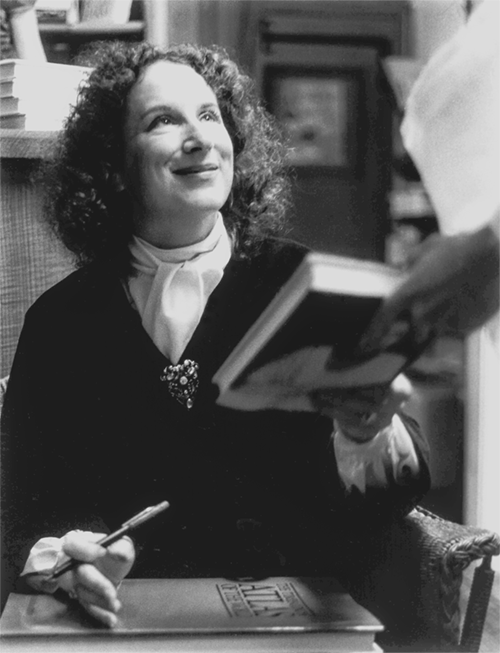Today, inspired by Margaret Atwood (born 1939), I bought a wastepaper basket. Fellow Substacker and winner of the Booker Prize, Ms. Atwood still enjoys writing by hand and highly recommends it.
“Your biggest friend as a novelist is your wastepaper basket…. It was invented for you by God.” —Margaret Atwood
Here are Margaret Atwood’s best writing tips:
Immerse yourself in the topic: “Nobody knows where ideas come from, but let us say, if you immerse yourself in something, whether it be music, painting, or writing…you are going to get ideas about it. But you have to do the immersing first. You’re not just sitting there, waiting for lightning to strike.” Determination, not inspiration; or be ready to be inspired every morning at your writing desk at 8:30, distraction free.
Exhaustive research: “It’s best to check your facts and factoids and even such things as when did people start using plastic garbage bags? What color were the refrigerators in 1960? When were pantyhose invented? You may think you know these things, but you really should go back and double-check.” The Handmaid’s Tale is based entirely upon real events that happened at some point somewhere in the world. Atwood used real facts to create stronger fiction.
Know which writing process works best for you: “I’m more of a downhill skier. I try to go as fast as I can and then I have to backtrack a lot and fill in revisions.” Try different methods and see what works for you. Try writing in silence, or with music, try editing and revising as you go, or getting through all the material at once and then going back to edit it.
Patience: “Any form of human creativity is a process of doing it and getting better at it…[Writers] don’t usually peak in their 20s. It’s usually quite a lot later on. Why is that? Because writing is about people and story is about people, and you know more about people and their stories as you get older…you see more and you experience more.”
Experiment: “Let’s speak of [writing] in terms of furniture arranging in your house. You put the sofa there. Hmmm…I dunno, it might look better over here. Hmmm…maybe it’s the wrong sofa. Maybe we could put this sofa upstairs and then this other different one here. Sometimes you take a turn down a corridor and it’s a dead end.” Writing is problem-solving.
Get a notebook: Write down things you think you might find useful later.
Read a lot, read critically: “If you are interested in writing and having a large toolkit of stories, [I suggest you read the classics — mythology, the Bible, Grimm’s fairy tales] because those stories have been building blocks for a great many writers before you.” What do I like and not like? Why? Notice how the writer puts it together and how they handle the language of the story.
Pay attention to posture: Keyboarding is hard on the neck and back. Stretch and do exercises, take breaks. You may not feel it now, but over time this is important.
If you reach an impasse: Either take a walk or go to sleep. “You also may find that ideas come to you when you’re walking that don’t come when you’re straining and struggling.”
Re-vision: “Pretend you’re a reader. Start on the first page. Is it a good enough first page to hold your attention? Are you gonna turn the page or not? If the answer is not, you need a different beginning. So, ‘revision’ means ‘re-vision.’ You’re seeing it anew.” Don’t be afraid to use the wastepaper basket. And don’t worry what others think of it while you’re writing. Decide in complete freedom. Margaret Atwood once threw away 100 pages when she realized the story would be better in the 1st person. She also changed the beginning of The Handmaid’s Tale many times till she came up with an opening she liked.
Write because you love it: “When I was starting to write, none of us thought we were going to have careers. We thought we were going to have vocations, which is quite a different thing. So our idea of being a writer was not a six-figure contract. It was the garret in Paris with the absinthe and the tuberculosis and being penniless and unknown but dedicating yourself to your art.”
HOLD MY ATTENTION. This is what writing is about.
Writing Tips from F. Scott Fitzgerald
You don't write because you want to say something, you write because you have something to say. -F. Scott Fitzgerald







Excellent!
I do everything on that list except write by hand.
Terrific, Laura!